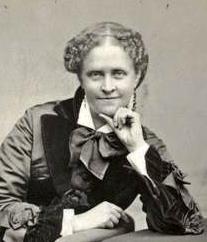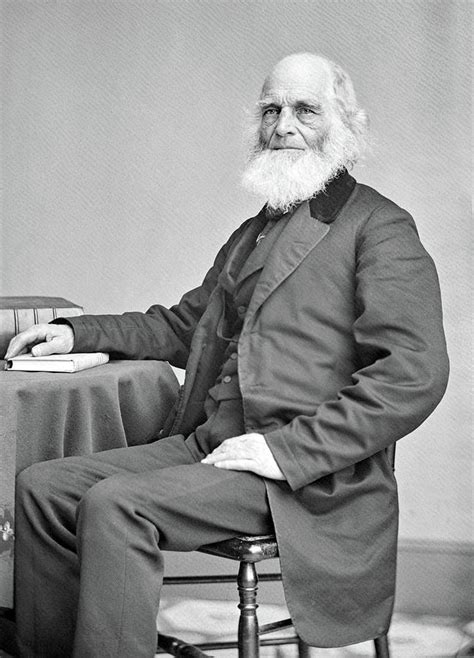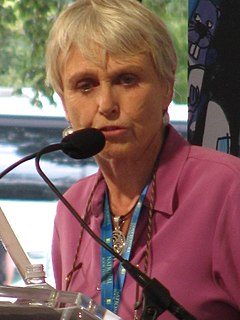A Quote by Charlotte Bronte
A Christmas frost had come at midsummer; a white December storm had whirled over June; ice glazed the ripe apples, drifts crushed the blowing roses; on hayfield and cornfield lay a frozen shroud: lanes which last night blushed full of flowers, to-day were pathless with untrodden snow; and the woods, which twelve hours since waved leafy and flagrant as groves between the tropics, now spread, waste, wild, and white as pine-forests in wintry Norway.
Related Quotes
The era of wild apples will soon be over. I wander through old orchards of great extent, now all gone to decay, all of native fruit which for the most part went to the cider mill. But since the temperance reform and the general introduction of grafted fruit, no wild apples, such as I see everywhere in deserted pastures, and where the woods have grown up among them, are set out. I fear that he who walks over these hills a century hence will not know the pleasure of knocking off wild apples.
The country ever has a lagging Spring,
Waiting for May to call its violets forth,
And June its roses-showers and sunshine bring,
Slowly, the deepening verdure o'er the earth;
To put their foliage out, the woods are slack,
And one by one the singing-birds come back.
Within the city's bounds the time of flowers
Comes earlier. Let a mild and sunny day,
Such as full often, for a few bright hours,
Breathes through the sky of March the airs of May,
Shine on our roofs and chase the wintry gloom-
And lo! our borders glow with sudden bloom.
One must have a mind of winter to regard the frost and the boughs of the pine trees, crusted with snow, And have been cold a long time, to behold the junipers, shagged with ice, the spruces, rough in the distant glitter of the January sun, and not to think of any misery in the sound of the wind, in the sound of a few leaves, which is the sound of the land, full of the same wind, blowing in the same bare place for the listener, who listens in the snow, and, nothing herself, beholds nothing that is not there, and the nothing that is.
And again it snowed, and again the sun came out. In the mornings on the way to the station Franklin counted the new snowmen that had sprung up mysteriously overnight or the old ones that had been stricken with disease and lay cracked apart-a head here, a broken body and three lumps of coal there-and one day he looked up from a piece of snow-colored rice paper and knew he was done. It was as simple as that: you bent over your work night after night, and one day you were done. Snow still lay in dirty streaks on the ground but clusters of yellow-green flowers hung from the sugar maples.
A white truffle, which elsewhere might sell for hundreds of dollars, seemed easier to come by than something fresh and green. What could be got from the woods was free and amounted to a diurnal dining diary that everyone kept in their heads. May was wild asparagus, arugula, and artichokes. June was wild lettuce and stinging nettles. July was cherries and wild strawberries. August was forest berries. September was porcini.
The snow lay thin and apologetic over the world. That wide grey sweep was the lawn, with the straggling trees of the orchard still dark beyond; the white squares were the roofs of the garage, the old barn, the rabbit hutches, the chicken coops. Further back there were only the flat fields of Dawson's farm, dimly white-striped. All the broad sky was grey, full of more snow that refused to fall. There was no colour anywhere.
For I am Saruman the Wise, Saruman Ring-maker, Saruman of Many Colours!' I looked then and saw that his robes, which had seemed white, were not so, but were woven of all colours, and if he moved they shimmered and changed hue so that the eye was bewildered. I liked white better,' I said. White!' he sneered. 'It serves as a beginning. White cloth may be dyed. The white page can be overwritten; and the white light can be broken.' In which case it is no longer white,' said I. 'And he that breaks a thing to find out what it is has left the path of wisdom.' - Gandalf
When the cold comes to New England it arrives in sheets of sleet and ice. In December, the wind wraps itself around bare trees and twists in between husbands and wives asleep in their beds. It shakes the shingles from the roofs and sifts through cracks in the plaster. The only green things left are the holly bushes and the old boxwood hedges in the village, and these are often painted white with snow. Chipmunks and weasels come to nest in basements and barns; owls find their way into attics. At night,the dark is blue and bluer still, as sapphire of night.
At about the age of seven … I wrote exactly the kinds of stories I was reading: All my characters were white and blue-eyed, they played in the snow, they ate apples, and they talked a lot about the weather: how lovely it was that the sun had come out. This despite the fact that I lived in Nigeria; we didn’t have snow, we ate mangoes, and we never talked about the weather, because there was no need to.







































